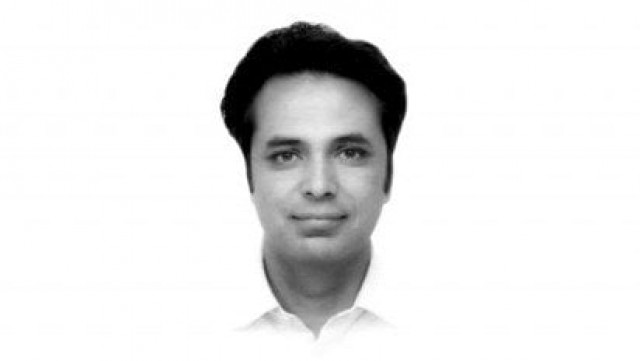The circus of Indo-Pak talks

Take the order of priorities in which his opening remarks flowed. He started off with terrorism and put it in the category of mutual concern, without ever fully stating what Pakistan’s concern (India-backed terrorism in Balochistan, Punjab and Fata) was in this ‘mutuality of interests’. Having spent an awful lot of time on this one issue, he then rattled off the rest of the list, where Pakistan’s concerns were paramount and pressing. In that Jammu and Kashmir was mentioned almost in passing and that too awkwardly juxtaposed with a string of other areas which the dialogue had covered. This was odd. If nothing else, Indian occupied Kashmir’s recent violent eruptions necessitated a firmer, more detailed and eloquent presentation. Mr Qureshi returned to the subject of Kashmir and Balochistan only when a question was asked by a reporter. In fact more than the question it was Mr Krishna’s answer that prompted the Pakistani foreign minister into some action. The Indian minister’s usual rhetoric of occupied Kashmir being part of India and his claim of not a “shred of evidence” of interference in Balochistan being provided to Delhi, were too provocative to be left unmet. But even there Mr Qureshi ended up calling the government in occupied Kashmir as an elected government and almost reduced the Kashmir issue as an issue of ‘human rights violations’. Mr Krishna’s answers had already thrown diplomatic niceties to the hot winds of aggravation.
This was the time to re-state Pakistan’s position on Kashmir being a dispute and the deadly games India is playing inside Pakistan. The time came and then it passed. Except for visible break down of bonhomie at the high table, the audience did not see or hear much by way of substance.
Moreover, as we discover now, by the time the two ministers walked into the conference hall, it was known to the Pakistani side that the Indians had gone back on the understanding reached the previous night: that all issues would be discussed and that this phase of talks could be considered a “resumption” of the formal dialogue, building on the work done in the previous years under the umbrella of a composite dialogue.
The new Indian line, dictated from Delhi by Shiv Shankar Menon, the National Security Advisor, was to shrink the entire exercise to just one point: ISI-sponsored terrorism conducted through the banned outfits on Indian soil must end. So the talks had been deadlocked. This fact should have reflected in the opening remarks of the joint presser. It did not. Mr Qureshi refused to characterise the talks’ end as a non-achievement. He was reporting success when it was a failure. He was saying progress when it was stalemate.
The next day was even more confusing. It was like the morning after regret when the foreign minister held another press event. This was needless, if not graceless. There was no point critiquing the Indian side’s conduct when the show was over.
These are the reasons why Mr Qureshi is getting bad press. He might not like the sound of it, but he could have done better.
Published in The Express Tribune, July 19th, 2010.















COMMENTS
Comments are moderated and generally will be posted if they are on-topic and not abusive.
For more information, please see our Comments FAQ